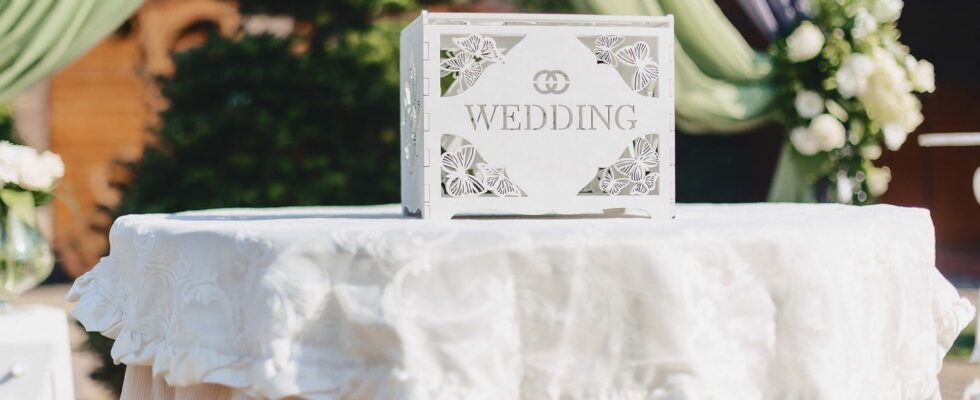A new trend is emerging at weddings, but guests don’t seem to be fully on board with it.
What to get as a wedding gift? This question comes up very regularly among guests. And it can turn into a headache. However, wedding lists can help guide choices. In the middle of a beautiful table service, a pretty wine cellar or a request to participate in financing the honeymoon, there is now something new.
It could be seen as a joke, but it is a real trend, one that could not be more symbolic in the current period. Now, among the wishes, future spouses do not hesitate to ask the people celebrating their union to give them a sum of money to contribute to the purchase of a house or an apartment.
According to The Knota U.S. wedding planning company, one in five couples are seeking financial assistance. The goal: to build up a down payment to apply for a mortgage. “Home equity was one of the most popular financial gifts on wedding registries on The Knot in 2022, second only to honeymoon equity,” the company says.
This is particularly the case for Mankin and Moss, who told their story to CBS. This American couple, based in New York, has asked for the generosity of their entourage to gather funds in order to take out a loan when the rates have dropped. In the meantime, the money is placed in a savings account. However, most of the guests do not seem happy about the idea of participating in a real estate financing: only 30% are in favor, according to a study by Realtor.
Yet, that doesn’t stop them from digging into their pockets for something else. “The typical couple receives 32% more funds for a honeymoon, with an average of €716 (total – euros/dollars conversion made), compared to the average funds raised for a new home, of €519,” The Knot tells Fortune.
Morgan Ward, a professor of consumer behavior, says the reason is simple: Guests prefer to mark the occasion with a personalized gift. “I suspect that gift-givers view a new home as more utilitarian and therefore less fun to give and likely something the bride and groom will buy themselves, whether or not they receive cash as a gift.”

